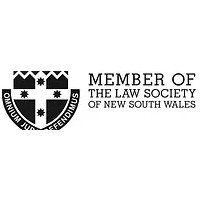Best Probate Lawyers in Wahroonga
Share your needs with us, get contacted by law firms.
Free. Takes 2 min.
List of the best lawyers in Wahroonga, Australia
About Probate Law in Wahroonga, Australia
Probate is the legal process that involves the administration of a deceased person's estate under the supervision of a court. In Wahroonga, Australia, like the rest of New South Wales, the Supreme Court is the legal authority that administers probate, giving permission to executors of the deceased's will to manage the estate, pay off any debts and distribute assets to the beneficiaries.
Why You May Need a Lawyer
You may need a Probate lawyer for a number of reasons. If the deceased person's will is contested or if there are complications like multiple properties or foreign assets, you will benefit from legal assistance. If there are disputes among siblings about the will, a probate lawyer can help mediate the situation. Also, a lawyer can assist if the deceased did not leave a will, known as dying intestate. Legal expertise can ensure everything is carried out lawfully and in the deceased’s best interest.
Local Laws Overview
In Wahroonga and the rest of New South Wales, probate law is outlined in the Probate and Administration Act 1898. Only the executor named in the will can apply for probate. If a will is without a named executor, or if the executor is unable or unwilling to act, an eligible person can apply to the Supreme Court for 'letters of administration'. Other important local laws include the Succession Act 2006 which outlines how an estate will be distributed if the deceased died without a will. These laws can be complex, and it's recommended to seek legal advice when navigating probate process.
Frequently Asked Questions
What happens if there's no will?
If the deceased did not leave a will, the process of managing their estate is known as 'administration' instead of 'probate'. In this case, a close relative, usually the spouse or a child of the deceased, would usually apply to the court for 'letters of administration'.
Is probate always required?
No, probate is not always required. For instance, if the deceased's assets were jointly held or if the estate is very small, probate may not be necessary. However, it's always recommended to get legal advice in such situations.
What is executor's role?
The executor's role is to carry out the wishes of the deceased as outlined in the will. This includes gathering the estate's assets, paying off any debts and distributing what remains to the beneficiaries.
How long does probate take?
Generally, it takes about 3 months for a straightforward probate process in New South Wales. However, it can take longer if there are complications such as contested wills or disputes among beneficiaries.
What does it cost?
The cost of probate process can vary greatly depending on the complexity of the estate and if a lawyer is hired to assist. Court filing fees also apply.
Additional Resources
The New South Wales Department of Justice has several resources for probate. The Supreme Court of New South Wales also provides probate forms and guidance. It is always advisable to consult a Probate lawyer who can help navigate through the process and provide important legal advice.
Next Steps
If you are an executor of a will or a close relative of someone who is deceased and facing the prospect of dealing with their estate, consider consulting a probate lawyer. They can assist you with the process of probate or administration as the case may be, explain local laws, guide you on the procedures to be followed, and offer support throughout the process.
Lawzana helps you find the best lawyers and law firms in Wahroonga through a curated and pre-screened list of qualified legal professionals. Our platform offers rankings and detailed profiles of attorneys and law firms, allowing you to compare based on practice areas, including Probate, experience, and client feedback.
Each profile includes a description of the firm's areas of practice, client reviews, team members and partners, year of establishment, spoken languages, office locations, contact information, social media presence, and any published articles or resources. Most firms on our platform speak English and are experienced in both local and international legal matters.
Get a quote from top-rated law firms in Wahroonga, Australia — quickly, securely, and without unnecessary hassle.
Disclaimer:
The information provided on this page is for general informational purposes only and does not constitute legal advice. While we strive to ensure the accuracy and relevance of the content, legal information may change over time, and interpretations of the law can vary. You should always consult with a qualified legal professional for advice specific to your situation.
We disclaim all liability for actions taken or not taken based on the content of this page. If you believe any information is incorrect or outdated, please contact us, and we will review and update it where appropriate.








